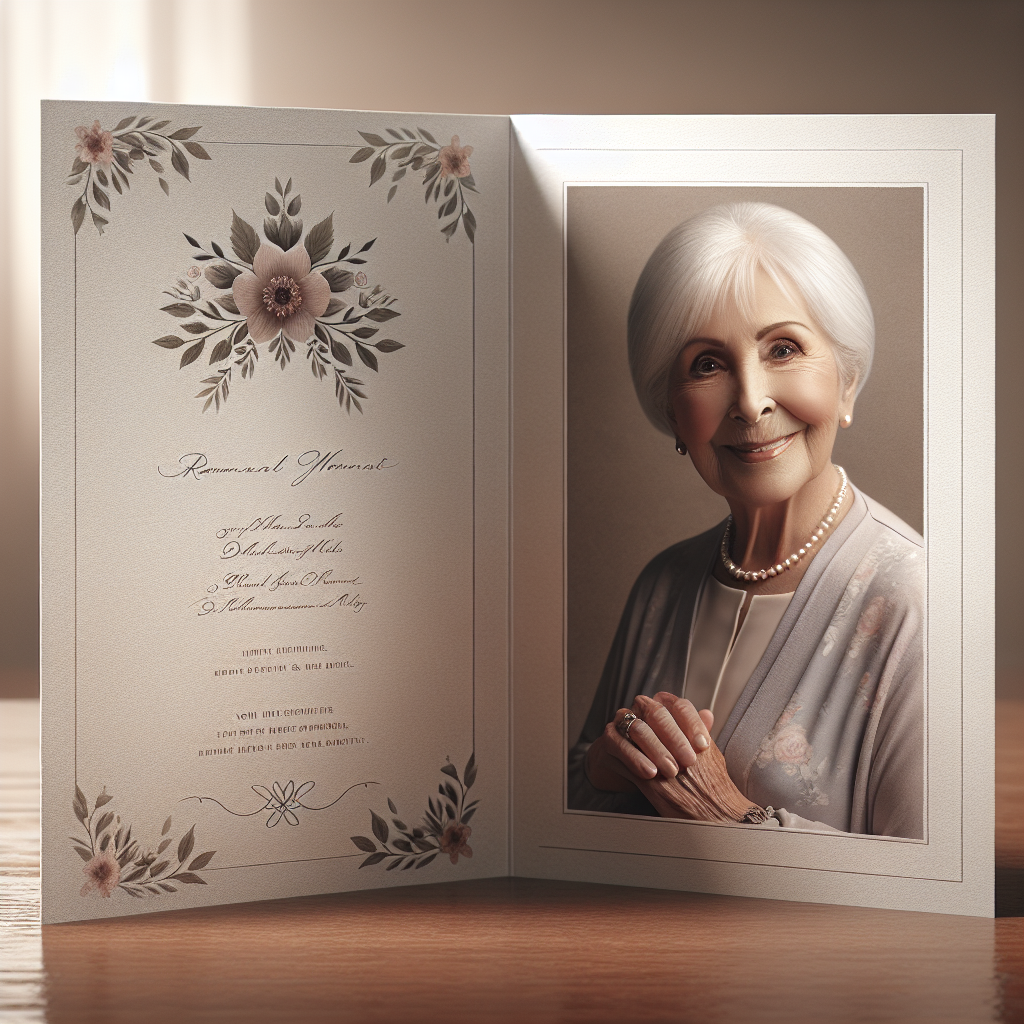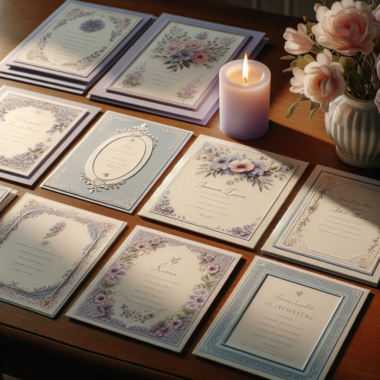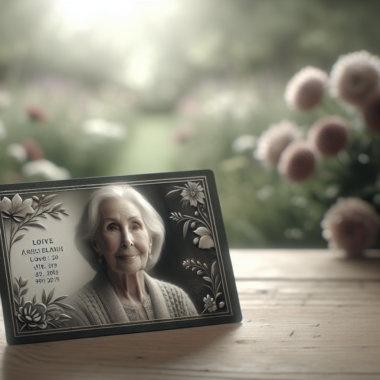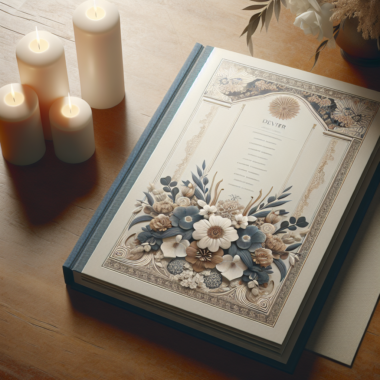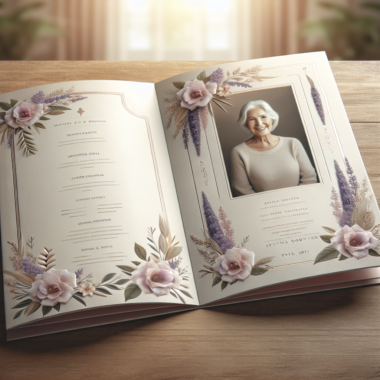Memorial cards are small, personalized tributes distributed during or after a funeral service. Understanding the memorial card meaning goes beyond mere tradition; these cards hold deep significance in remembering and honoring a loved one who has passed away. Typically, they include a photograph of the deceased, important dates, and a brief heartfelt message or prayer. This tangible keepsake serves as a cherished reminder for family and friends, allowing them to reflect on shared memories and celebrate a life well-lived.
The true essence of a memorial card lies in its ability to encapsulate the unique spirit of a person. By offering personalized messages, quotes, or even a favorite poem, these cards help keep the memory of the deceased alive. They are not only a source of comfort during the grieving process but also a way to maintain a connection with the departed. As such, the design and content of a memorial card are often carefully chosen to reflect the personality and beliefs of the individual.
In today’s digital age, memorial cards can also be shared online, reaching more people and allowing distant relatives or friends to participate in the remembrance. Whether physical or digital, these cards offer lasting mementos for those who continue to cherish the memories of their loved ones.
At DisciplePress, we understand the importance of creating meaningful and personalized tributes. Order funeral & memorial prints today to honor your loved ones in the most heartfelt way.
Historical Significance of Memorial Cards

The historical significance of memorial cards dates back to the Victorian era, a time when mourning customs were both elaborate and deeply rooted in tradition. Originally, these cards were created as a way to formally announce the death of an individual and provide details about the funeral service. Over time, however, they evolved to serve as a personal keepsake for those who wished to remember their lost loved ones.
In the 19th century, memorial cards were often intricately designed with ornate borders, religious imagery, and Gothic fonts. The Victorians placed great importance on preserving memories, and these cards became an essential part of the mourning process. They were often exchanged among family and friends as a tangible expression of condolence and solidarity. The inclusion of religious symbols and verses also reflected the era’s emphasis on spirituality and the afterlife.
As printing technology advanced, memorial cards became more accessible and customizable. This allowed families to add personal touches, such as photographs or unique designs, making each card a reflection of the individual’s life and legacy. The enduring appeal of memorial cards lies in their ability to bridge the past with the present; they serve not only as a reminder of those who have left us but also as a testament to the enduring bonds shared with them.
Today, while the designs may have modernized, the essence of memorial cards remains unchanged. They continue to play a vital role in the grieving process, offering comfort and preserving memories for future generations.
Cultural Variations in Memorial Card Usage

Memorial cards are a universal practice, yet they exhibit fascinating cultural variations across the globe, reflecting diverse traditions and beliefs surrounding death and remembrance. In many Western cultures, these cards are often simple, featuring a tasteful design with a photograph of the deceased, a favorite poem or prayer, and the dates of birth and death. This format serves as a respectful and personal tribute.
In contrast, many Asian cultures integrate more elaborate designs and symbols into their memorial cards, which often depict spiritual themes or vibrant colors that signify the celebration of life rather than solely focusing on mourning. For instance, in Hindu traditions, the cards may include images of deities or spiritual icons, alongside mantras or quotes from sacred texts.
Meanwhile, in Latin American communities, memorial cards frequently carry elements from the vibrant Día de los Muertos (Day of the Dead) celebrations. They might include motifs like marigolds, skulls, or other joyful symbols that honor the deceased in a festive manner, focusing on the continuity of life and the spiritual connection with those who have passed.
In African cultures, memorial cards can be quite colorful and are often used to convey the individual’s achievements and contributions to the community. They may include traditional patterns and proverbs that celebrate the life and legacy of the departed.
These cultural variations highlight how memorial cards are not just about mourning a loss, but also about celebrating and honoring the unique journey of the deceased. They offer a poignant glimpse into the values and customs of different societies, underscoring the universal human desire to remember and cherish loved ones who have passed away.
Personalization and Design of Memorial Cards
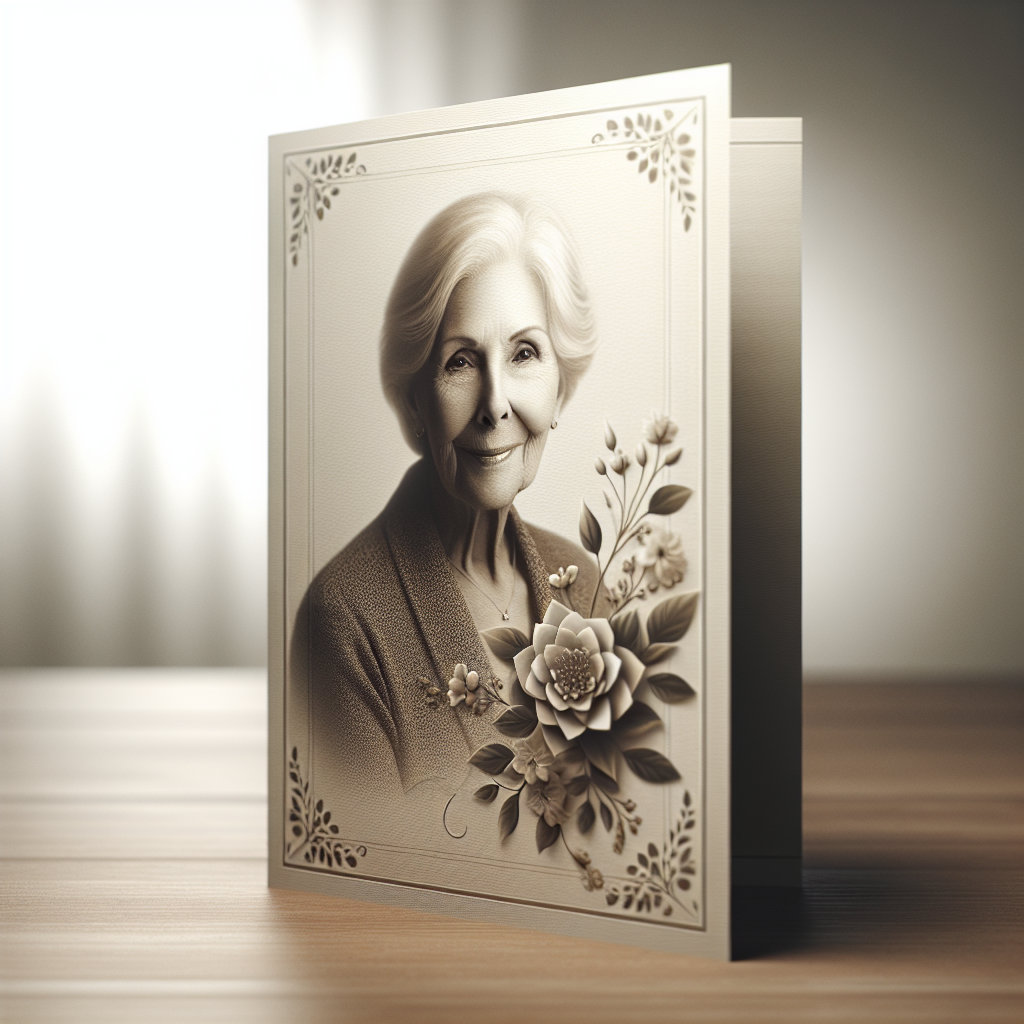
The personalization and design of memorial cards hold great significance in capturing the essence of a loved one’s life and legacy. This process allows family and friends to create a tangible keepsake that reflects the individual’s personality, interests, and the unique bond they shared with their loved ones.
One of the first considerations in personalizing a memorial card is the choice of imagery. Many opt for a cherished photograph of the deceased, capturing a moment that speaks volumes about their character. This image often serves as the focal point, drawing the eye and the heart to the person being commemorated.
Beyond photographs, the inclusion of meaningful text is a powerful way to personalize these cards. Families often select a favorite quote, poem, or religious passage that resonates with the deceased’s beliefs or outlook on life. Some may choose to write a personal tribute or a short biography, providing a glimpse into the life story of the individual.
Design elements also play a crucial role in personalization. Selecting a color palette that was beloved by the deceased or reflects their favorite season can add a personal touch. Additionally, incorporating symbols or motifs that held special meaning—such as a favorite flower, animal, or hobby—can make the card even more evocative.
Advanced printing techniques now allow for a wide array of finishes, from elegant matte to glossy, and even textured papers that enhance the tactile experience of the memorial card. These details may seem small, but they contribute significantly to crafting a remembrance that feels both personal and profound.
The thoughtful personalization and design of memorial cards not only honor the life of the deceased but also offer comfort and connection to those who hold these keepsakes, serving as lasting reminders of the person they cherished.
Role of Memorial Cards in Grief and Healing
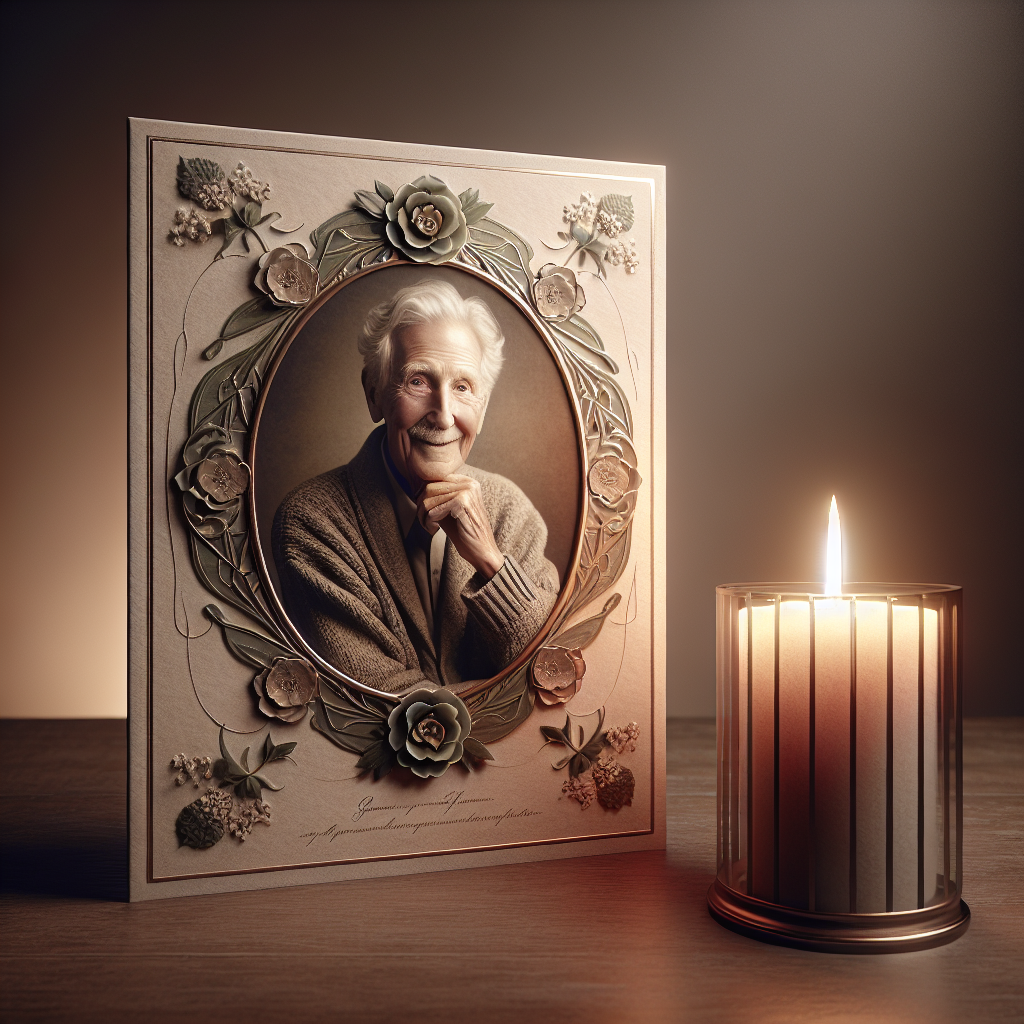
Memorial cards play a crucial role in the process of grief and healing, providing a tangible link to the memories of a loved one who has passed. In times of loss, these cards serve as more than just mementos; they become important tools in the journey of emotional recovery and remembrance.
For many, the act of creating and distributing memorial cards can be a form of catharsis. Selecting the right words, images, and design elements encourages reflection on the life and impact of the deceased, allowing family members to celebrate the positive moments shared. This process can bring a sense of peace and closure, helping to acknowledge the reality of loss while also cherishing meaningful memories.
Recipients of memorial cards often find comfort in these tokens. They serve as constant reminders of the love and connection shared with the deceased, offering solace during moments of sorrow. The physical presence of a memorial card can provide stability and a sense of continuity, acting as a touchstone for individuals navigating their grief.
Additionally, memorial cards can facilitate conversations about the deceased, encouraging the sharing of stories and memories among friends and family. These shared experiences can be healing, reinforcing bonds and creating a supportive network for those who are grieving.
In the broader scope of healing, memorial cards can also serve as a legacy, ensuring that the spirit and essence of the departed are not forgotten. They offer a way to keep the memory alive, allowing future generations to connect with their heritage and understand the values and stories of those who came before them.
Ultimately, the role of memorial cards in grief and healing is profound. They embody love, remembrance, and the enduring impact of those we have lost, guiding us through the challenging path of mourning and into a space of emotional restoration.
Choosing the Right Memorial Card for a Loved One
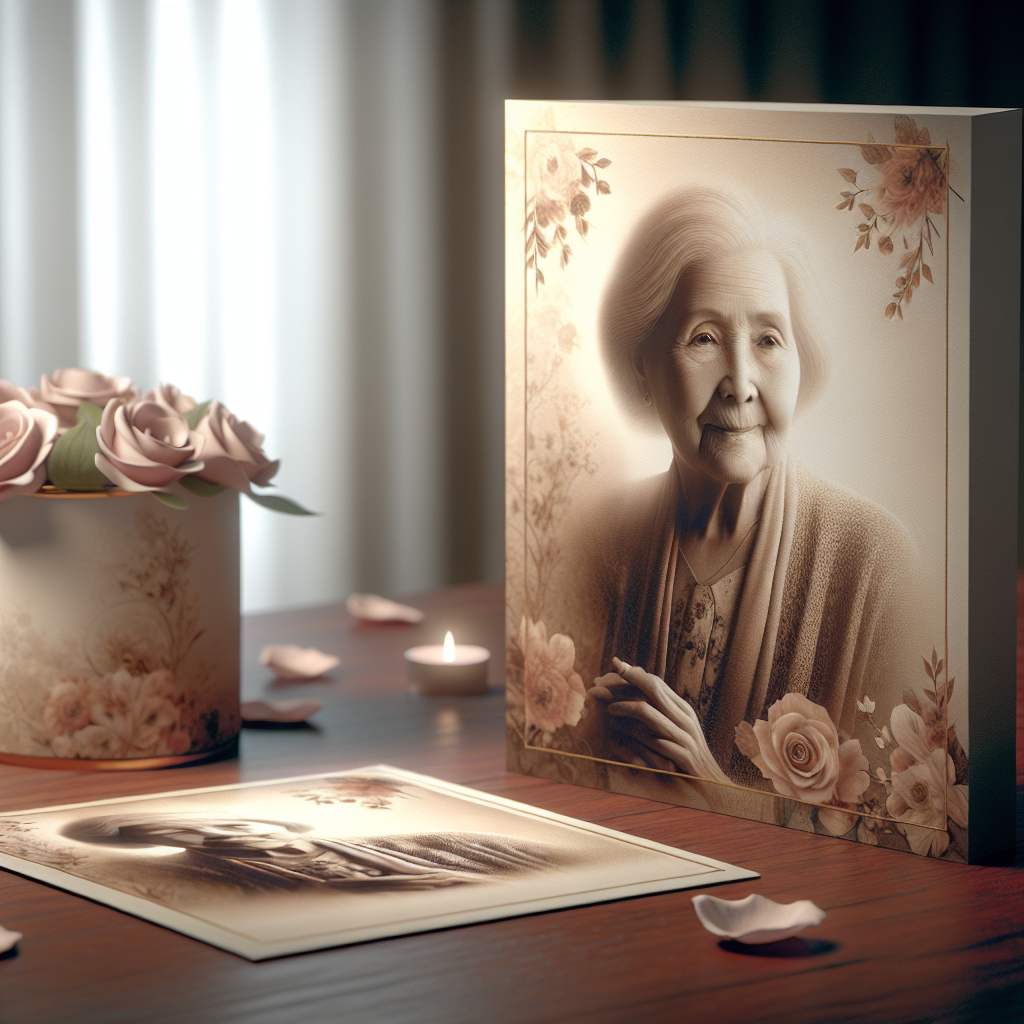
Selecting the right memorial card for a loved one is a deeply personal and significant task. These cards serve as lasting tributes, encapsulating the essence of the departed and offering comfort to those who remain. To choose a fitting memorial card, it is essential to consider several factors that reflect the unique personality and legacy of the deceased.
**Personalization** is key. Consider incorporating elements that highlight the individual’s passions, achievements, or favorite quotes. This can include selecting colors and themes that were significant to them, or adding photographs that capture special moments in their life. The inclusion of a heartfelt message or a beloved poem can further personalize the card, making it a true reflection of their spirit.
The type of card is another important consideration. Memorial cards come in various formats, such as traditional folded cards, bookmarks, or wallet-sized prints. Each type serves a different purpose and can be chosen based on the preferences of the family and the intended distribution. For instance, bookmarks can be kept in a book, serving as a constant reminder, while wallet-sized cards offer the advantage of being easily carried and shared.
When designing a memorial card, it’s also important to think about the community and culture of the deceased. Incorporating cultural symbols or religious texts can honor their heritage and provide comfort to attendees who share these beliefs. These elements can make the card more meaningful and resonate with those who receive it.
Ultimately, the choice of a memorial card should be guided by love and respect for the departed, ensuring that the final product serves as a cherished keepsake for all who receive it. As you embark on this journey of remembrance, consider exploring the wide range of **funeral and memorial printing services** available at DisciplePress, LLC. **Order funeral & memorial prints today** and honor your loved one’s memory in the most personalized and heartfelt way possible.
 Free Shipping Over $50
Free Shipping Over $50  888-432-8363
888-432-8363


 Obituary/Programs
Obituary/Programs No-Fold Memorial Programs
No-Fold Memorial Programs 4 Page Funeral Programs
4 Page Funeral Programs 8 Page Memorial Programs
8 Page Memorial Programs 12 Page Funeral Programs
12 Page Funeral Programs 16 Page Funeral Programs
16 Page Funeral Programs 20 Page Funeral Programs
20 Page Funeral Programs Tri-Fold Funeral Programs
Tri-Fold Funeral Programs Complete Memorial Packages
Complete Memorial Packages
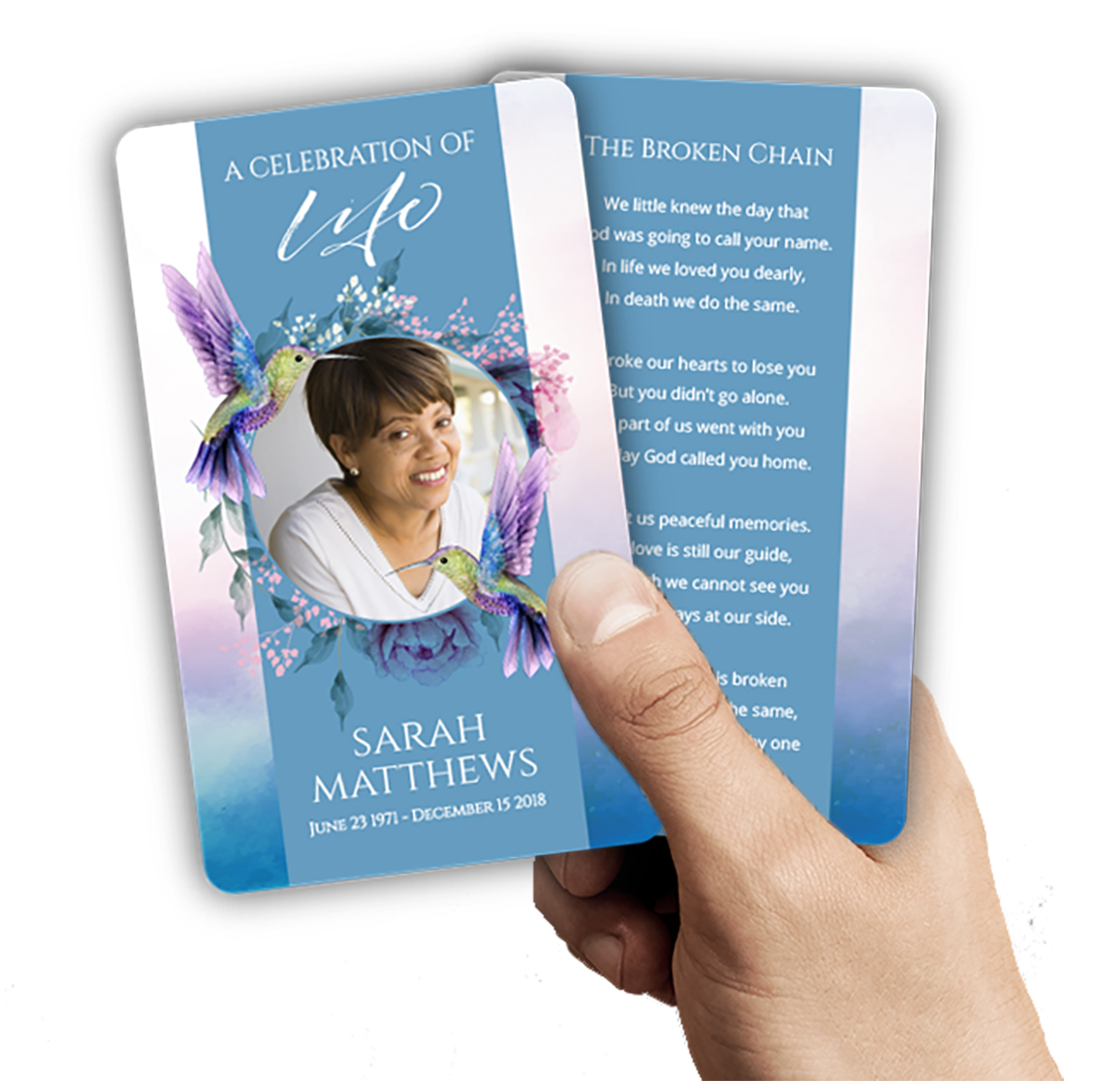 Cards & Bookmarks
Cards & Bookmarks Saint Prayer Cards
Saint Prayer Cards Folded Memorial Cards
Folded Memorial Cards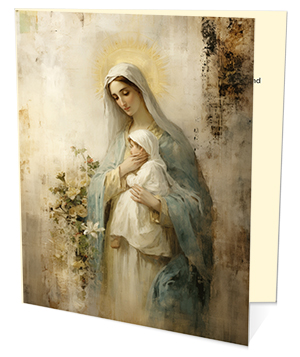 Folded Holy Cards
Folded Holy Cards Memorial Bookmarks
Memorial Bookmarks Thank You Cards
Thank You Cards Share-A-Memory Cards
Share-A-Memory Cards Memorial Magnets
Memorial Magnets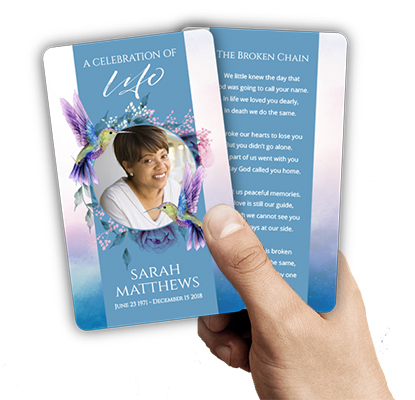
 Memorial Posters
Memorial Posters Guest Books
Guest Books Slide Shows
Slide Shows Memorial Fans
Memorial Fans Death Announcements
Death Announcements Take Away Keepsakes
Take Away Keepsakes
 Church Products
Church Products